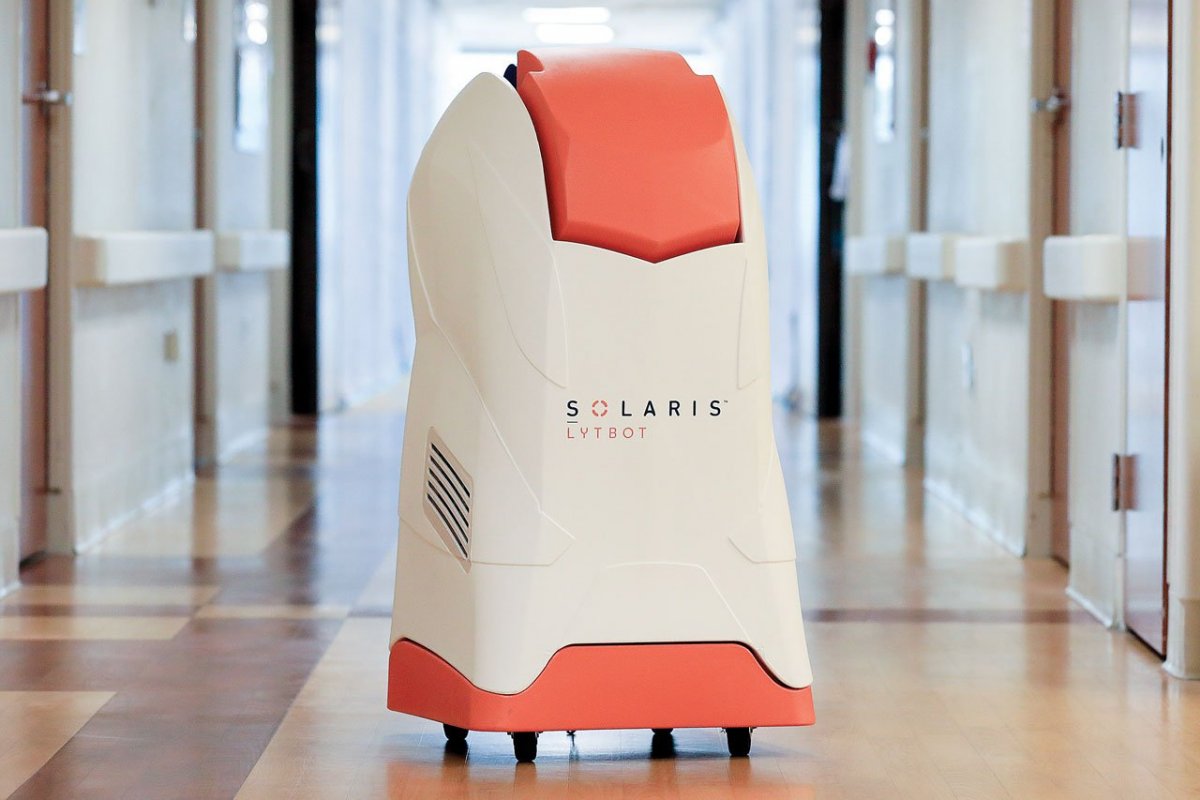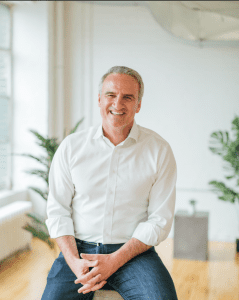[vc_row][vc_column][vc_column_text]“Current cleaning practices are not good enough,” contends Val Ramanand.
If anyone would know, it would be Ramanand. He is the co-founder and executive chairman of Solaris, an emerging entity in the healthcare and disinfection market that specializes in service robotics. He boasts not one, not two, but over three decades of commercial cleaning industry experience — and excellence.
First, Ramanand expanded his immigrant family’s cleaning business, TBM Service Group, into an acclaimed organization with over a thousand employees. Today, TBM provides invaluable services to Ontario’s prominent colleges, airports, and transit lines.
Soon after, advances in safety and health allowed him to introduce TBM Sanitation, a division of the company that pioneers sanitation procedures for food processing and packaging. Under Ramanand’s stewardship, it became one of the few sanitation specialists whose management team is certified through the Brand Reputation Compliance Global Standards (BRC) program.
Finally, in 2012, he was determined to produce best-in-class pulsed UV disinfection. He launched Solaris with former TBM director Adam Steinhoff.
A visionary within his ventures, Ramanand understands what cleaners do well and don’t.
“The reality is, when you’ve got humans involved in cleaning space, you need to make sure that the disinfectants have enough dwell time. It’s one of the things that people are not fully aware of,” he reveals. “If you spray and wipe, in essence, you’re doing nothing. You need to spray that disinfectant on and allow it to dwell. Some companies have a one-minute dwell time, or a five- or 10-minute dwell time.”
Ramanand says that Solaris exists because that system does not work. He cites studies that have been done in many hospitals, indicating that 70 percent of the time after a housekeeper leaves a hospital room, it still harbours some pathogens.
When you meet the germ-blasting Solaris Lytbot, you’ll notice that it’s a portable, “no-touch” disinfection technology that “goes in when the pros get out.”
More precisely, the frontline favourite cycles through a programmed pattern and fires pulsed UV light until it completes a 360-degree sweep of the room. Through cellular disruption, its beams wield a withering effect on germ cells and bacteria spores.
Automated disinfection represents a critical component in the future of healthcare infection prevention. Facilities already applying Solaris technology have recorded a dramatic reduction in the number of hospital-acquired infections being reported — a decline of up to 60 or 70 percent.
Though impressive, the number shouldn’t be surprising. Since 2017, Solaris has been researching the effectiveness of its pulsed UV technology against communicable human respiratory viruses (like novel coronaviruses), with outcomes proving its ability to eradicate over 99 percent of such pathogens in as little as 10 seconds.
Magic bullet? Hardly. Rather, Ramanand likens the operation to the evolution of automobile safety.
“First, we drove cars without seatbelts. A lot of people died. We then added seatbelts. We’ve cut back [that] amount. We then added airbags. Again, it’s the layering and layering of those types of things,” he explains. “But if you just use an airbag and not a seatbelt, you’re going to have some issues, right? It’s all designed to work in a process.”
Soon, Ramanand hopes that this equipment will become standard.
“It’s not going to be a ‘nice to have.’ It will be a ‘need to have.’ That’s where we’re positioning ourselves. We want this to be an everyday [solution]. That the same way you would spray a disinfectant, you would use this. I believe we’re getting there.”
The issue right now? Cost, of course. Robotics are great, but not if you can’t afford them. This begs the question:
How will Solaris make its robotics less cost-prohibitive?
“We’re innovative,” responds Ramanand. “We’ve got version 2.0 coming out. We’re going to market that as a ‘freemium’ product. We’re basically giving it away for free.”
Solaris intends to apply charges based on usage and data that it’ll collect. The Lytbot itself is built on the IoT (Internet of Things) concept. This means the company will know exactly when it’s being used — and who’s using it. And it won’t take long to start calculating the device’s effect on hospital-acquired infections, since Solaris tracks infection rates in certain areas.
RELATED: How to Transform Your Work From Home Space with iRobot
Considering what it can do for cash-strapped hospitals and health-care facilities alone, could Lytbot be the tool that helps get Canadians back to that state of normalcy they crave?
Sure, Ramanand reckons, as long as we focus on the value of purpose-built technology on the whole.
“We need to look at affordable technology, affordable robotics. Not at trying to build something because it’s the newest trend,” he argues. “Solaris has built the Lytbot for the purpose of cleaning.”
There’s also the little matter of making a difference.
“We’re not just after money. We’re after impact. We know that we’re saving lives, and we know we can save more lives if we’ve got more equipment out there.”[/vc_column_text][/vc_column][/vc_row]













